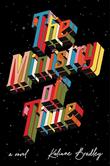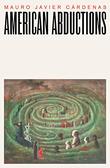
by Charles Palliser ‧ RELEASE DATE: today
A cynical story about how, in the absence of moral courage, terror and self-preservation can also be powerful motivators.
Sympathy may be a virtue, but it can also get you into plenty of trouble.
The author, who established himself as a maker of intricate puzzles with his first novel, The Quincunx (1989), provides another in this wartime tale of a family’s efforts to protect a young girl from a vicious enemy. This is not a portrait of World War II Europe or a fictionalized account of Anne Frank’s life. Palliser is interested less in external details than in the situation’s psychological aspect, exploring the pressures building inside an ordinary family plunged into an extraordinary situation. The narrator, an unnamed bookkeeper in an unnamed European city, describes the invasion of his country and the way one of his younger daughter’s schoolmates comes to live with them. The girl’s wealthy parents, who are on a trip, have been cut off by the invasion. The narrator feels sorry for her, but his feelings are hardly altruistic. He hopes the girl’s father “would be so grateful that he would reward me with a well-paid post” when he returns. The girl, who seems appreciative at first, proves to be a master manipulator with a “mere veneer of charm” who sets the family members against each other. Though they realize they’ve made a mistake, they hesitate to send her home. They’ve already told too many lies to snooping neighbors and worry about being found out. They also cling to the hope of getting a reward even when it’s clear this isn’t going to happen. The girl belongs to an unspecified ethnic community targeted for destruction by the country’s new “puppet dictatorship,” whose sinister plan is hidden behind a seemingly beneficial agenda. Palliser gradually tightens the screws in various ways and the family keeps hiding the girl not out of any deep moral sense but because it’s too late to do anything else. Some readers may feel this plot could have been explored in a novella or short story, but Palliser manages to keep up the tension as his narrative drives to its tragic, unsettling end.
A cynical story about how, in the absence of moral courage, terror and self-preservation can also be powerful motivators.Pub Date: today
ISBN: 9781771838856
Page Count: 212
Publisher: Guernica Editions
Review Posted Online: March 23, 2024
Kirkus Reviews Issue: April 15, 2024
Share your opinion of this book

by Kristin Hannah ‧ RELEASE DATE: Feb. 6, 2024
A dramatic, vividly detailed reconstruction of a little-known aspect of the Vietnam War.
Awards & Accolades
Likes

66
Our Verdict

GET IT
New York Times Bestseller
A young woman’s experience as a nurse in Vietnam casts a deep shadow over her life.
When we learn that the farewell party in the opening scene is for Frances “Frankie” McGrath’s older brother—“a golden boy, a wild child who could make the hardest heart soften”—who is leaving to serve in Vietnam in 1966, we feel pretty certain that poor Finley McGrath is marked for death. Still, it’s a surprise when the fateful doorbell rings less than 20 pages later. His death inspires his sister to enlist as an Army nurse, and this turn of events is just the beginning of a roller coaster of a plot that’s impressive and engrossing if at times a bit formulaic. Hannah renders the experiences of the young women who served in Vietnam in all-encompassing detail. The first half of the book, set in gore-drenched hospital wards, mildewed dorm rooms, and boozy officers’ clubs, is an exciting read, tracking the transformation of virginal, uptight Frankie into a crack surgical nurse and woman of the world. Her tensely platonic romance with a married surgeon ends when his broken, unbreathing body is airlifted out by helicopter; she throws her pent-up passion into a wild affair with a soldier who happens to be her dead brother’s best friend. In the second part of the book, after the war, Frankie seems to experience every possible bad break. A drawback of the story is that none of the secondary characters in her life are fully three-dimensional: Her dismissive, chauvinistic father and tight-lipped, pill-popping mother, her fellow nurses, and her various love interests are more plot devices than people. You’ll wish you could have gone to Vegas and placed a bet on the ending—while it’s against all the odds, you’ll see it coming from a mile away.
A dramatic, vividly detailed reconstruction of a little-known aspect of the Vietnam War.Pub Date: Feb. 6, 2024
ISBN: 9781250178633
Page Count: 480
Publisher: St. Martin's
Review Posted Online: Nov. 4, 2023
Kirkus Reviews Issue: Dec. 1, 2023
Share your opinion of this book
More by Kristin Hannah
BOOK REVIEW
BOOK REVIEW
BOOK REVIEW
More About This Book
PERSPECTIVES
BOOK TO SCREEN

by Leigh Bardugo ‧ RELEASE DATE: April 9, 2024
Lush, gorgeous, precise language and propulsive plotting sweep readers into a story as intelligent as it is atmospheric.
In 16th-century Madrid, a crypto-Jew with a talent for casting spells tries to steer clear of the Inquisition.
Luzia Cotado, a scullion and an orphan, has secrets to keep: “It was a game she and her mother had played, saying one thing and thinking another, the bits and pieces of Hebrew handed down like chipped plates.” Also handed down are “refranes”—proverbs—in “not quite Spanish, just as Luzia was not quite Spanish.” When Luzia sings the refranes, they take on power. “Aboltar cazal, aboltar mazal” (“A change of scene, a change of fortune”) can mend a torn gown or turn burnt bread into a perfect loaf; “Quien no risica, no rosica” (“Whoever doesn’t laugh, doesn’t bloom”) can summon a riot of foliage in the depths of winter. The Inquisition hangs over the story like Chekhov’s famous gun on the wall. When Luzia’s employer catches her using magic, the ambitions of both mistress and servant catapult her into fame and danger. A new, even more ambitious patron instructs his supernatural servant, Guillén Santángel, to train Luzia for a magical contest. Santángel, not Luzia, is the familiar of the title; he has been tricked into trading his freedom and luck to his master’s family in exchange for something he no longer craves but can’t give up. The novel comes up against an issue common in fantasy fiction: Why don’t the characters just use their magic to solve all their problems? Bardugo has clearly given it some thought, but her solutions aren’t quite convincing, especially toward the end of the book. These small faults would be harder to forgive if she weren’t such a beautiful writer. Part fairy tale, part political thriller, part romance, the novel unfolds like a winter tree bursting into unnatural bloom in response to one of Luzia’s refranes, as she and Santángel learn about power, trust, betrayal, and love.
Lush, gorgeous, precise language and propulsive plotting sweep readers into a story as intelligent as it is atmospheric.Pub Date: April 9, 2024
ISBN: 9781250884251
Page Count: 400
Publisher: Flatiron Books
Review Posted Online: Feb. 3, 2024
Kirkus Reviews Issue: March 1, 2024
Share your opinion of this book
More by Leigh Bardugo
BOOK REVIEW
BOOK REVIEW
by Leigh Bardugo ; illustrated by Dani Pendergast
BOOK REVIEW
© Copyright 2024 Kirkus Media LLC. All Rights Reserved.
Hey there, book lover.
We’re glad you found a book that interests you!
We can’t wait for you to join Kirkus!
It’s free and takes less than 10 seconds!
Already have an account? Log in.
OR
Trouble signing in? Retrieve credentials.
Welcome Back!
OR
Trouble signing in? Retrieve credentials.
Don’t fret. We’ll find you.





